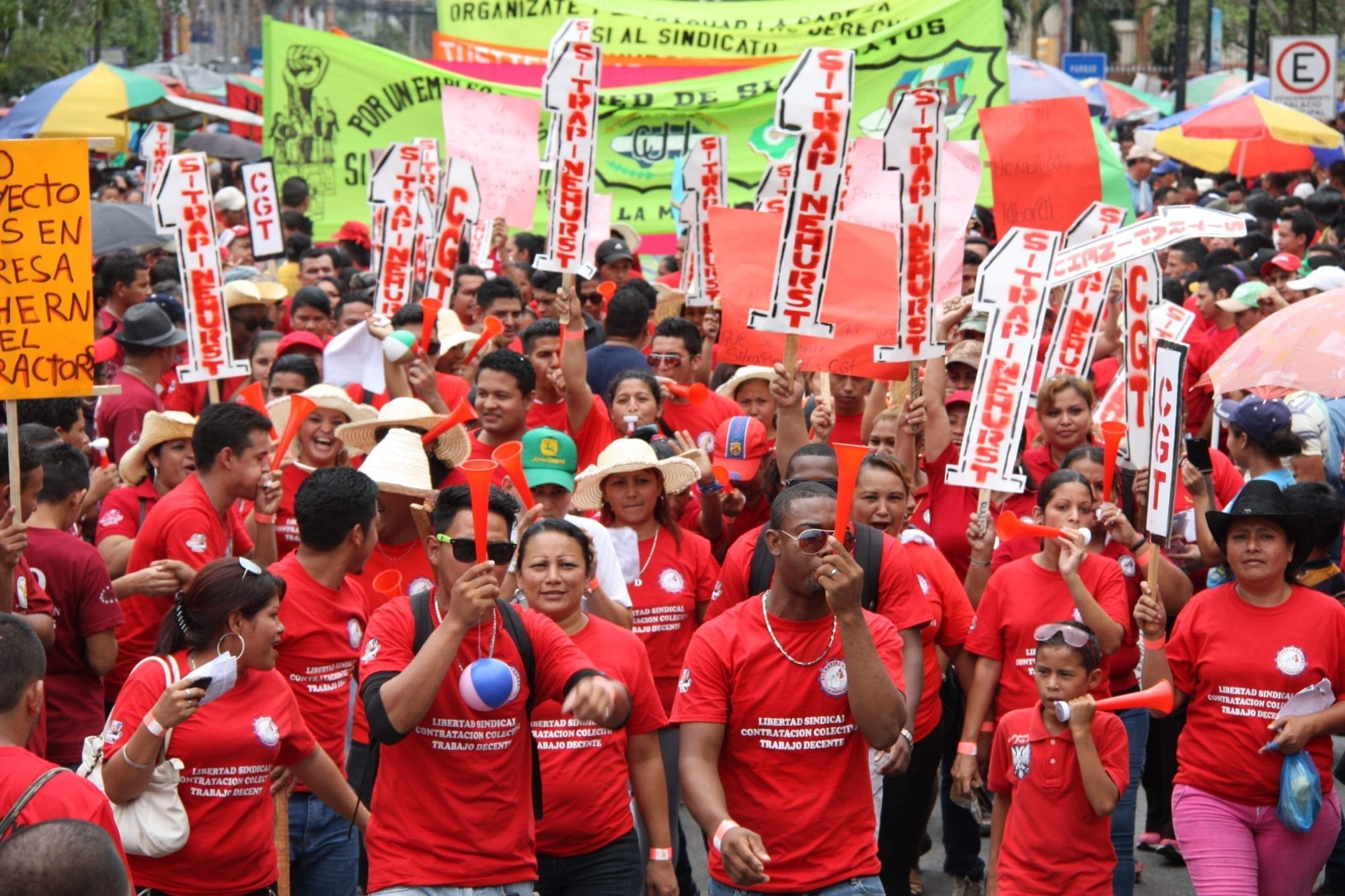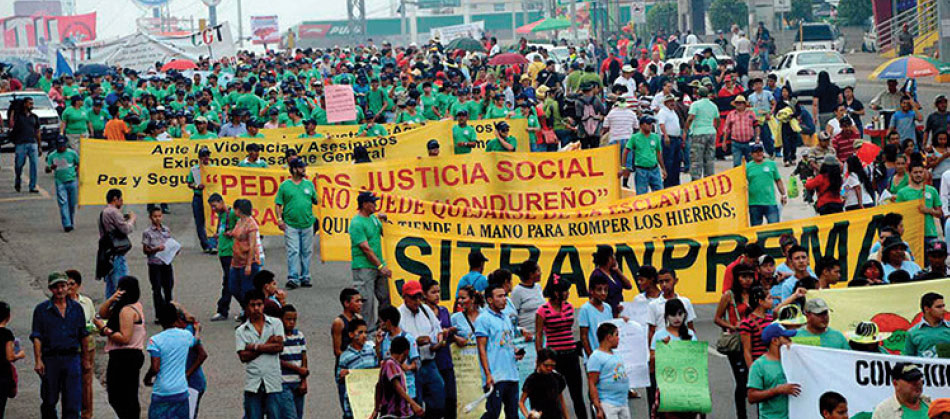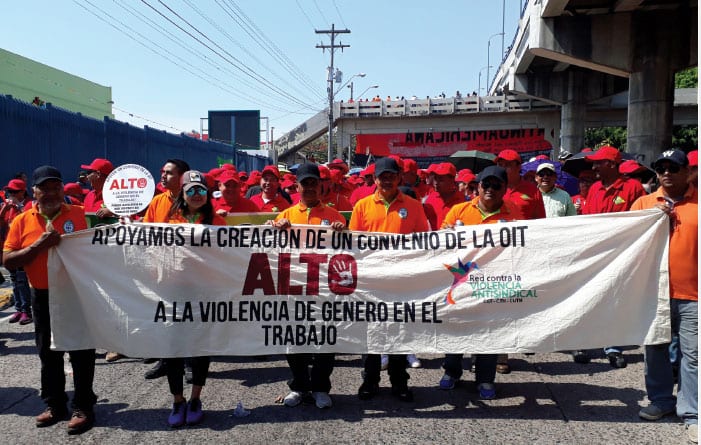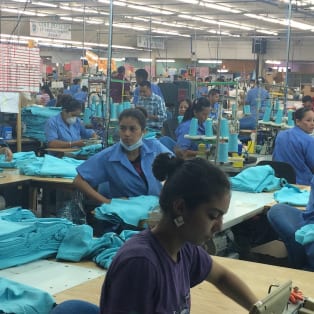In Honduras, where union leaders are targeted with violence and even murdered for trying to form unions and improve workers’ lives, Darlin Oviedo, president of the apparel union SITRAJASPER (the Union of Workers of the Jasper Company), recognized the signs that he...

Through the Solidarity Center’s women’s leadership development, tens of thousands of workers in Honduras’s garment sector negotiated collective bargaining pacts that significantly boosted wages and provide benefits like educational funds. Credit: Solidarity Center/Stephen Wishart
Report Documents Anti-Union Violence in Honduras
Two union leaders in Honduras were murdered in 2019, and dozens more physically attacked, threatened and harassed for their activism in advocating worker rights, according to the just-released report, The Price of Defending Freedom of Association: A Report on...
COVID-19: ‘Maquila Workers Shouldn’t Bankroll Employers’
Maquila workers in El Salvador and Honduras are challenging employer attempts to use the coronavirus as a way to cut wages, layoff workers and even stop worker efforts to form unions. In Honduras, after the government on March 15 barred groups larger than 50 from...




